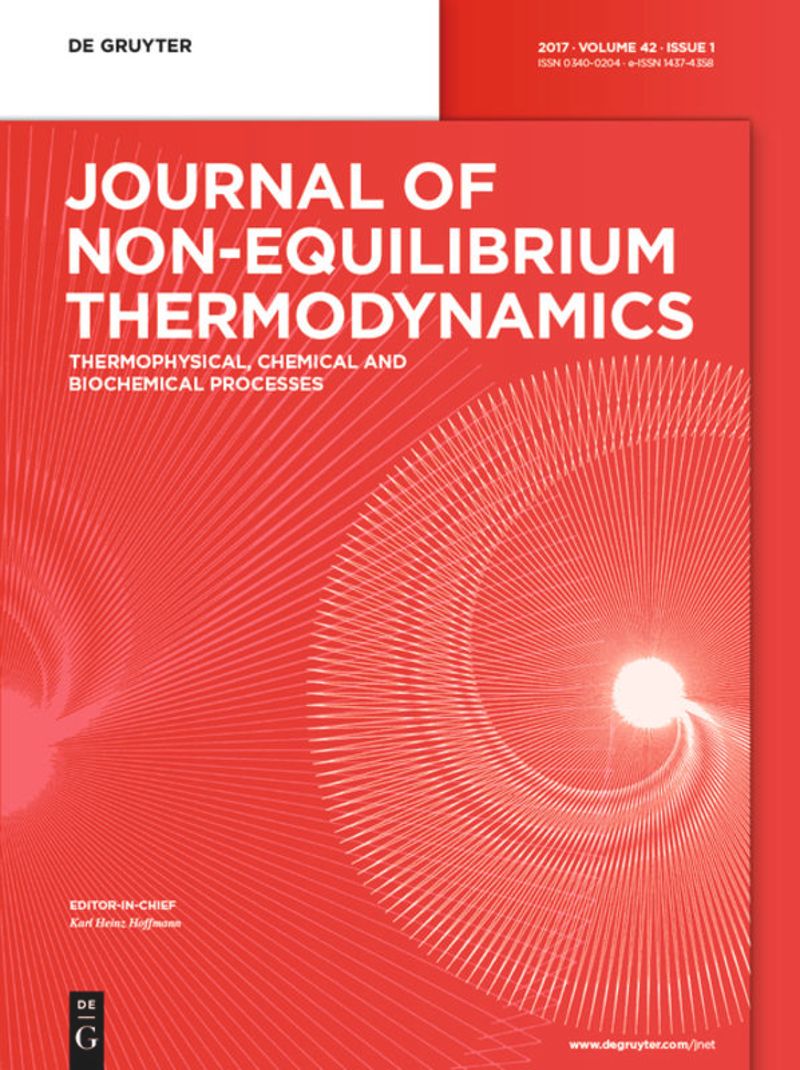Improved modeling of Janus membrane considering the influence of hydrophilic layer characteristics
IF 4.2
3区 工程技术
Q1 MECHANICS
引用次数: 0
Abstract
Abstract Some of the previous investigations neglect the mass transfer contribution of the hydrophilic layer for modeling the Janus membrane that is used for direct contact membrane distillation (DCMD). This work studies the impact of adding such resistance on the performance of the DCMD, especially on the temperature polarization coefficient (TPC), thermal efficiency, and permeate flux. The commercial software Ansys 2020 was used to describe the transport behavior through the Janus membrane. The bulk-flow model was employed to evaluate the permeate flow through the hydrophilic layer for the first time. Simulation results were compared with the experimental results from the literature for validating the model, and a satisfactory agreement was found. Results demonstrated that the permeate flux increased by about 61.3 % with changing the porosity of the hydrophilic layer from 0.5 to 0.9 for the membrane with the lowest hydrophilic layer thickness. Moreover, the thermal conductivities of both layers contribute significantly to the DCMD’s overall performance enhancement. Vapour flux might be enhanced by increasing the hydrophilic layer’s thermal conductivity while decreasing the hydrophobic layer’s thermal conductivity. Finally, the DCMD thermal efficiency was investigated, for the first time, in terms of both layer characteristics.考虑亲水层特性影响的Janus膜的改进建模
在直接接触膜蒸馏(DCMD)过程中,一些研究忽略了亲水性层的传质作用。本文研究了加入该电阻对DCMD性能的影响,特别是对温度极化系数(TPC)、热效率和渗透通量的影响。利用商业软件Ansys 2020描述了通过Janus膜的输运行为。首次采用体积流模型对亲水性层的渗透流动进行了评价。将仿真结果与文献中的实验结果进行了比较,验证了模型的正确性。结果表明,亲水性层厚度最低的膜,当亲水性层孔隙度由0.5增加到0.9时,膜的渗透通量增加约61.3%。此外,两层的热导率对DCMD的整体性能增强有重要贡献。提高亲水层的热导率,降低疏水层的热导率,可以增强蒸汽通量。最后,首次从两层特性的角度研究了DCMD的热效率。
本文章由计算机程序翻译,如有差异,请以英文原文为准。
求助全文
约1分钟内获得全文
求助全文
来源期刊
CiteScore
9.10
自引率
18.20%
发文量
31
审稿时长
1 months
期刊介绍:
The Journal of Non-Equilibrium Thermodynamics serves as an international publication organ for new ideas, insights and results on non-equilibrium phenomena in science, engineering and related natural systems. The central aim of the journal is to provide a bridge between science and engineering and to promote scientific exchange on a) newly observed non-equilibrium phenomena, b) analytic or numeric modeling for their interpretation, c) vanguard methods to describe non-equilibrium phenomena.
Contributions should – among others – present novel approaches to analyzing, modeling and optimizing processes of engineering relevance such as transport processes of mass, momentum and energy, separation of fluid phases, reproduction of living cells, or energy conversion. The journal is particularly interested in contributions which add to the basic understanding of non-equilibrium phenomena in science and engineering, with systems of interest ranging from the macro- to the nano-level.
The Journal of Non-Equilibrium Thermodynamics has recently expanded its scope to place new emphasis on theoretical and experimental investigations of non-equilibrium phenomena in thermophysical, chemical, biochemical and abstract model systems of engineering relevance. We are therefore pleased to invite submissions which present newly observed non-equilibrium phenomena, analytic or fuzzy models for their interpretation, or new methods for their description.

 求助内容:
求助内容: 应助结果提醒方式:
应助结果提醒方式:


